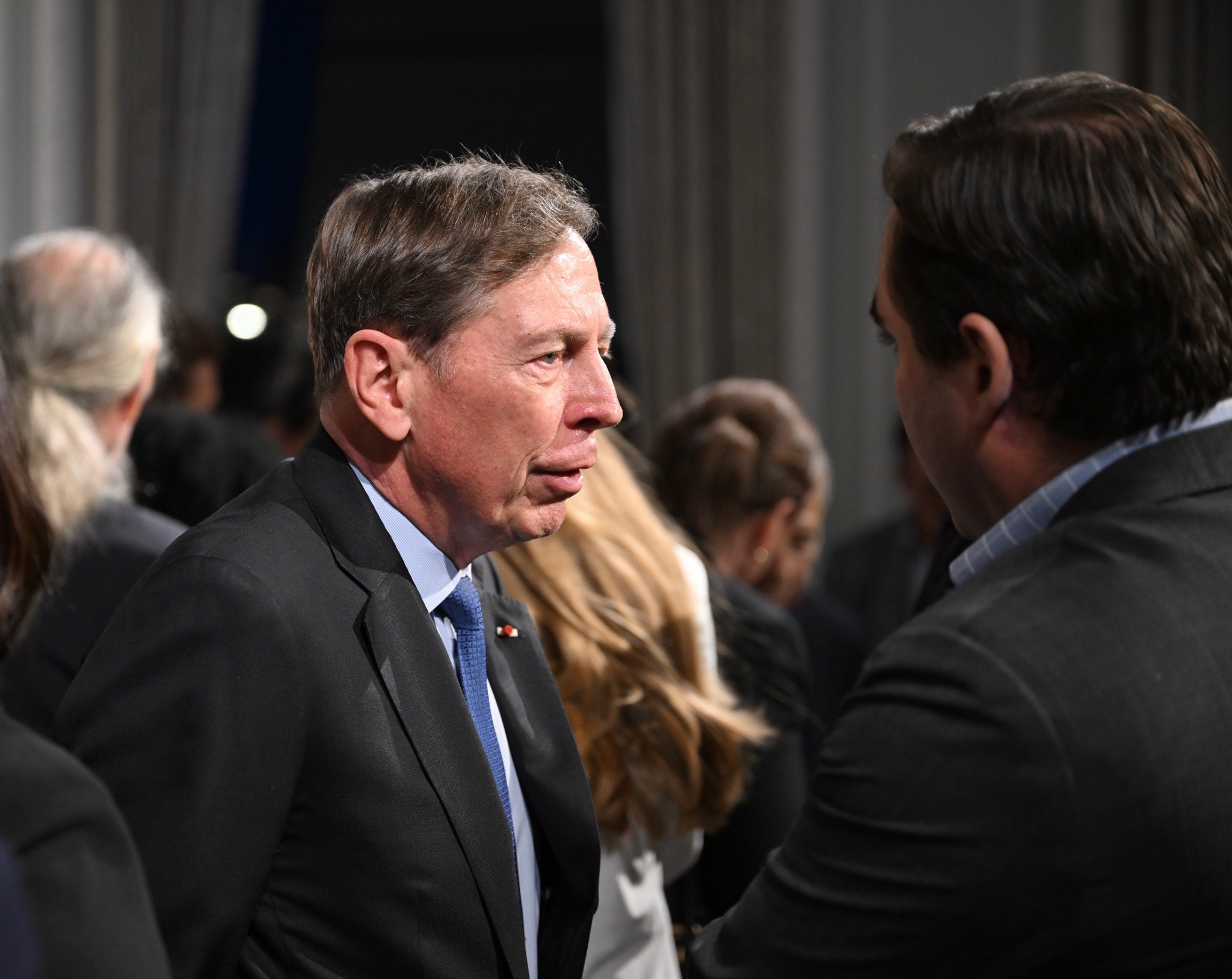An Evening Dedicated to Mental Health and Recovery in War-Torn Ukraine

The Ukrainian Institute of America was the setting for an enlightening, informative, and ultimately hopeful evening that gave guests the opportunity to learn more about Russia's ongoing war with Ukraine. On hand to offer his insights was none other than retired United States Army general David Petraeus, who has long criticized the Kremlin’s motives for the invasion as well as the tactics employed by its forces.
Petraeus, though the most high profile guest, was accompanied by a slew of different individuals who have nonetheless made their mark, using their collective efforts to address the innumerable challenges that have arisen in Ukraine since the war began. Among them, for instance, was Michele Anenberg Poma, the Director of International Partnerships and Collaborations for the Superhumans Center for Prosthetics and Rehabilitation, a rehabilitation center dedicated to caring for war survivors who are dependent on a prosthesis due to amputation. Poma affirmed the Center’s commitment to the people of Ukraine, highlighting some recent success stories that show, without question, how deeply support for the country runs amid an ongoing humanitarian crisis.
Mitzi Perdue, who hosted the evening.
What has been largely overlooked in Ukraine, the evening’s hostess, AFPC-USA’s very own Mitzi Perdue, said to the audience of approximately 120 guests, is mental health, a crisis all its own. The culture is a more stoic one, she emphasized, and people are less likely to share their struggles than keep them to themselves, such is the nature of their social conditioning. Anxiety, depression, and post-traumatic stress disorder (PTSD) have made leaps and bounds over the population, however, and they exist no matter whether someone is on the frontline or going about their daily business. “Studies conducted in 2022 found a 54% prevalence of anxiety in Ukraine, with 26% of the population meeting the criteria for post-traumatic stress disorder,” per The Lancet, which this month published insights into the gravity of the situation facing citizens and mental health professionals alike. Life in Ukraine goes on—children go to school and adults go to work, people laugh and still find joy on what is presently one of humanity’s darkest frontiers—but these issues persist just the same.
With this in mind, Perdue, Petraeus, and their cohort introduced a groundbreaking initiative designed to address Ukraine’s unmet need for mental health support. That initiative, Mental Health Global, is an AI-driven platform offering free, scalable, mental health assistance in Ukrainian, Russian, and English. In collaboration with the American University Kyiv, whose President, Dan Rice, was also in attendance, and leveraging cutting-edge technology, this initiative seeks to bridge the gaps in mental health care to enhance the essential human services that are already in place.
Mental Health Global has already received project funding and the official platform is currently under construction, with deliverables expected within the next few months. Above all, the platform operates under the belief that mental health care is a fundamental right, not a privilege afforded to the few in a world where more than 970 million people live with a mental health or substance abuse disorder, where 1 in 2 people will be affected by mental health disorders in their lifetime, and upwards of 250 million people live with depression, one of the top causes of disability.
The necessity of such a platform was underscored by remarks from Petraeus, who addressed the impact of American involvement in Ukraine’s defense and expressed his belief that Russian President Vladimir Putin would eventually realize that his war—which has killed or wounded nearly 1 million people since it began—is not sustainable. Like many experts and observers, he pointed out that Ukraine’s future hangs in the balance given the politicized nature of military aid for the nation.
Though the evening, as with many events at the Ukrainian Institute of America, further explored one of the more somber topics of discussion within the realm of geopolitics, it was not without its pleasures. Guests enjoyed champagne-style wines saved from the 4-month siege of Bakhmut—a treat for all, particularly those who until that moment had not known of the existence of Ukrainian wineries, a topic which Perdue herself examined in a recent piece for AFPC-USA about how Putin’s allies used the site for their own self-enrichment.
And perhaps most strikingly, the audience was serenaded multiple times by two members of the Cultural Forces. The duo, led by Ukrainian poet, musician, and television star Mykolai Sierga, are just a fraction of the talent on display within the regiment, whose level of excellence has proven so impressive that the Ukrainian government sent them on tour in the United States. Though the night was unavoidably colored by the horrors of the war, it was no less a celebration of cultural heritage, a call for freedom, and a prayer for a brighter future.
Alan Herrera is the Editorial Supervisor for the Association of Foreign Press Correspondents (AFPC-USA), where he oversees the organization’s media platform, foreignpress.org. He previously served as AFPC-USA’s General Secretary from 2019 to 2021 and as its Treasurer until early 2022.
Alan is an editor and reporter who has worked on interviews with such individuals as former White House Communications Director Anthony Scaramucci; Maria Fernanda Espinosa, the former President of the United Nations General Assembly; and Mariangela Zappia, the former Permanent Representative to Italy for the U.N. and current Italian Ambassador to the United States.
Alan has spent his career managing teams as well as commissioning, writing, and editing pieces on subjects like sustainable trade, financial markets, climate change, artificial intelligence, threats to the global information environment, and domestic and international politics. Alan began his career writing film criticism for fun and later worked as the Editor on the content team for Star Trek actor and activist George Takei, where he oversaw the writing team and championed progressive policy initatives, with a particular focus on LGBTQ+ rights advocacy.


























